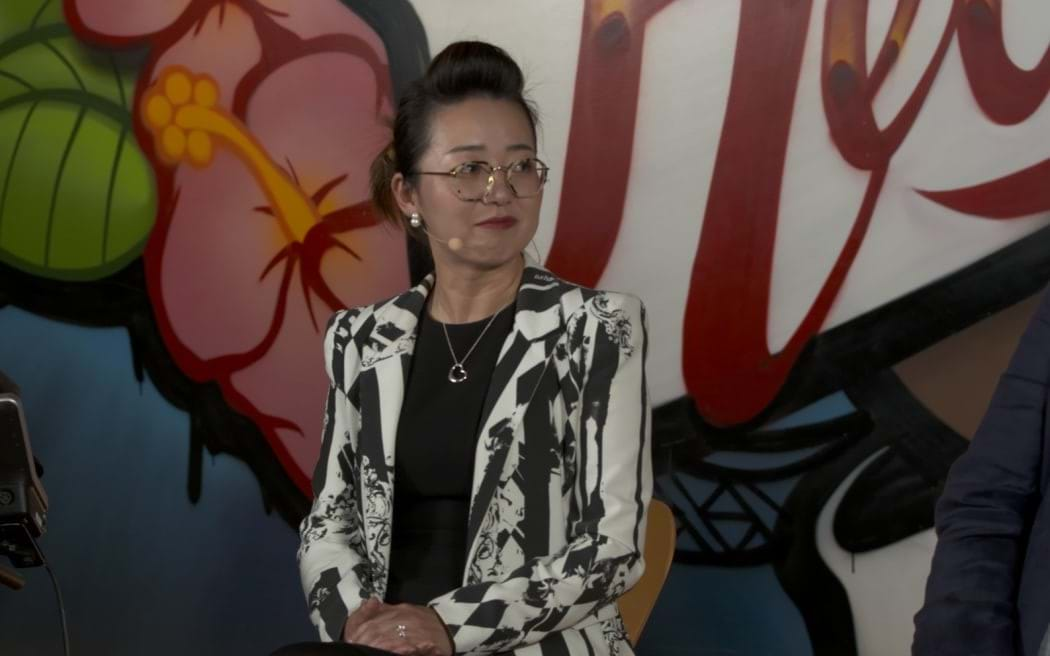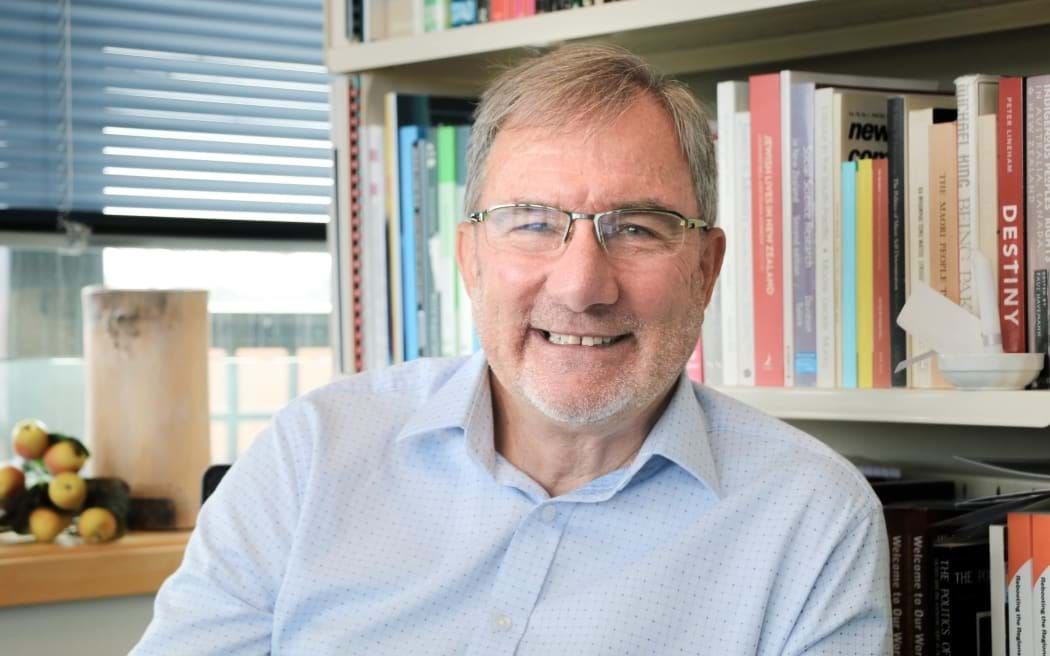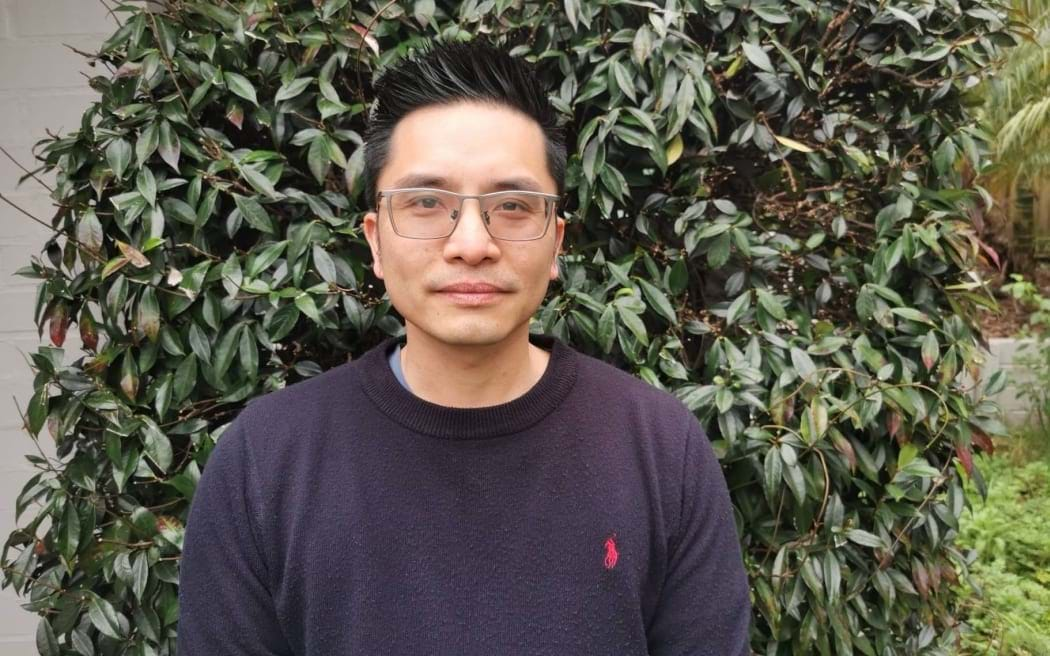
Dr Kelly Feng said it was disapppointing a Te Whatu Ora report failed to address Asian needs. Photo: RNZ / Screenshot
Health practitioners and experts are concerned that Te Whatu Ora has failed to address Asian health needs in its latest plan.
Its interim planning report Te Pae Tata was released in late October and sets out what is planned for the first two years of the health sector transformation.
While the 2018 census showed Asians were 16 percent of Aotearoa's population, and was projected to reach 26 percent in two decades, the word Asian appeared just once in the report of over 100 pages.
Director Kelly Feng of Asian Family Services which provides mental health support to Asians said it was disappointing.
She said their feedback to Te Whatu Ora has fallen on deaf ears.
"We've been to all the meetings they had and all the submissions we had to highlight Asian needs for mental health and addiction need to be prioritised, and what we see now in the plan, again nothing about us. It's really disappointing."
One of New Zealand's leading population experts, Professor Paul Spoonley from Massey University, said it was an oversight for Aotearoa's fastest growing ethnic group to be overlooked in health planning.
"It just seems very puzzling to me that health systems in this country are not seeing this as a very significant part of their future health provision," he said.
Spoonley said while Auckland was the biggest centre for Asian communities, Asian populations were also increasing in the regions. For instance, in the South Island there was a growing Filipino community working in the dairy sector.
He said the health and social needs of Asians in all regions needed to be considered.
"We need all those regions and rural centres to really understand that migration from Asia within NZ is going to be part of their future, and they really need to take notice."

Professor Paul Spoonley says the needs of diverse ethnic groups can still be considered within a bi-cultural framework for health provision. Photo: RNZ / Katie Scotcher
Spoonley said three-quarters of Asian Kiwis were migrants and they faced more language and cultural barriers to accessing mainstream services.
He said there should be no conflict in catering to the needs of New Zealand's diverse ethnic groups within a bi-cultural framework for health provision.
Spoonley said Māori values such as manaakitanga (the process of showing care and respect) could also inspire approaches to health planning for ethnic communities.
Out of touch
Meanwhile, Auckland GP Carlos Lam said policymakers were out of touch with Asian communities.
"The people who created that document absolutely have no idea what's actually going on within Auckland, and they don't actually have a clear idea of what's happening in the biggest population centres in New Zealand where the majority of the Asian population reside," he said.
Dr Lam said diverse Asians had unique challenges and cultural barriers, but these were often neglected in health campaigns.
"High rates of diabetes in our south Asian populations, that's almost never talked about in mainstream media, and unfortunately there's no targeted programmes to address these issues.
"And I think there's other things too I could go on about, for example cervical smears in women. Asian women have the lowest rates, I haven't seen a specific programme out there to target cervical smears among our Asians," he said.

Auckland GP Carlos Lam said diverse Asians had unique challenges and cultural barriers but these were often neglected in health campaigns. Photo: Supplied
Data from the Public Health Association (PHANZ) showed Asians also have some of the lowest GP enrolment rates.
As of last July, Asian New Zealanders' enrolment with GPs was 84 percent, one percent higher than Māori.
Otago University PhD student Denzel Chung, who is researching Chinese Kiwis' experience of mental health services, said NGOs (non-governmental organisations) were carrying the load for providing culturally appropriate support where public services were lacking.
Chung said there was also a general lack of research into Asian health needs.
The last comprehensive Asian health report funded by the Ministry of Health was from 16 years ago, and the most recent analysis of Asian health data from the annual New Zealand Health Survey was done six years ago.
The Ministry of Health would not respond on whether it thought that was good enough.
Te Whatu Ora transformation and enablers director Rachel Haggerty said Te Pae Tata focused mostly on Māori, Pacific and disabled people where the need was greatest to achieve equitable outcomes in the short term.
When asked why Asian health needs were not addressed in Te Pae Tata, Haggerty said as an interim report, it did not include changes for every community or circumstance, but instead looked at key priorities.
However, she said it was working with the Ministry of Ethnic Communities to ensure all communities got better care.
Haggerty said Te Whatu Ora will look at access to interpretation services for ethnic groups, and will also do a stocktake of mental health services for Asian and ethnic providers.
Te Whatu Ora could ot give a timeline for those plans.